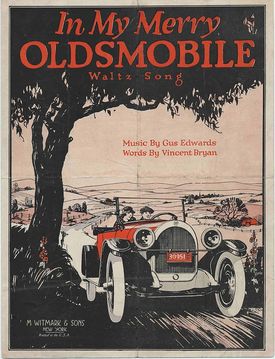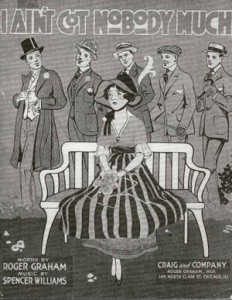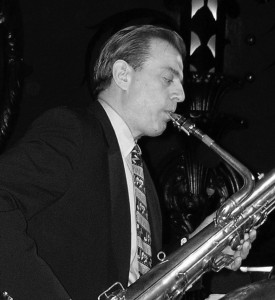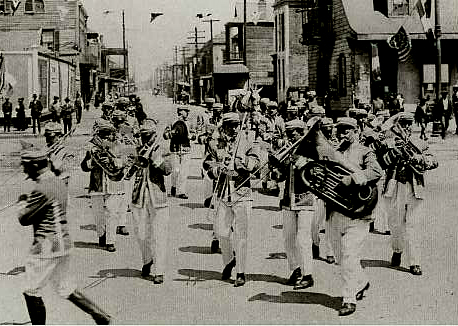Marches played in the free-wheeling, swinging New Orleans style are at the bedrock of traditional jazz. Today brass bands are still often seen in the streets of the Crescent City.
Mutual aid and benefit societies launched outfits like the Excelsior and the Onward brass band in New Orleans in the early 1900s for the purpose of "helping the sick and burying the dead." They accomplished their lofty mission with rousing street parades, concerts for Sunday picnics and political rallies, and playing for what would become the city’s famous jazz funerals. On the way back from the cemetery folks still follow behind a brass band in a 'second line,' dancing and twirling parasols or handkerchiefs in the air.
Riverwalk Jazz cracks open its vault to reveal newly-discovered tracks in a concert of Gems from the Cutting Room Floor. The Jim Cullum Jazz Band kicks things off with a set of marches, including "Black Rag" from 1925 and "High Society" from 1901.
Over time Jim and the Band have recorded thousands of tracks with standout guests like Dick Hyman and Vince Giordano, and some have never made it to broadcast. This week we share never-before-broadcast jewels from the archive.
Piano legend Dick Hyman holds the record as the most-recorded guest on the Riverwalk Jazz radio series. Digging through the archive, we came across a spectacular solo-piano track of Dick performing "I Ain't Got Nobody," captured live on the stage of the Crest Theatre one Memorial Day weekend at the Sacramento Jazz Jubilee.
Equally remarkable was the discovery of a trio of tunes associated with Jazz Age cornetist Bix Beiderbecke: "Sorry," "Fidgety Feet" and "In My Merry Oldsmobile." The latter features bass saxophonist Vince Giordano, one of the world's leading interpreters of Bix's music.
With the last dregs of Prohibition and the Great Depression weighing heavily, the early 1930s must not have seemed so 'golden.' And yet, some of the most sophisticated American pop music ever created came out of that time, known as the Golden Age of Song. To close out our concert of Gems from the Cutting Room Floor, we feature music from composers of the era: Irving Berlin, George Gershwin, Harry Warren and Cole Porter.
Small "chamber jazz" groups, although few in members, can swing as hard as a full jazz band given the right players. John Sheridan gives new life to Harry Warren's "You're My Everything" in the jazz "piano trio" combination of piano, bass and drums, and a Benny Goodman-style trio of Sheridan, Ron Hockett, and Kevin Dorn give us their romping interpretation of George Gershwin's "Nice Work If You Can Get It." And the entire band jumps back at the finish line with an instrumental rendition of Cole Porter's "Love for Sale."
Photo credit for Home Page: Vince Giordano. Photo coutesy Riverwalk Jazz.
Text based on Riverwalk Jazz script by Margaret Moos Pick ©2007





